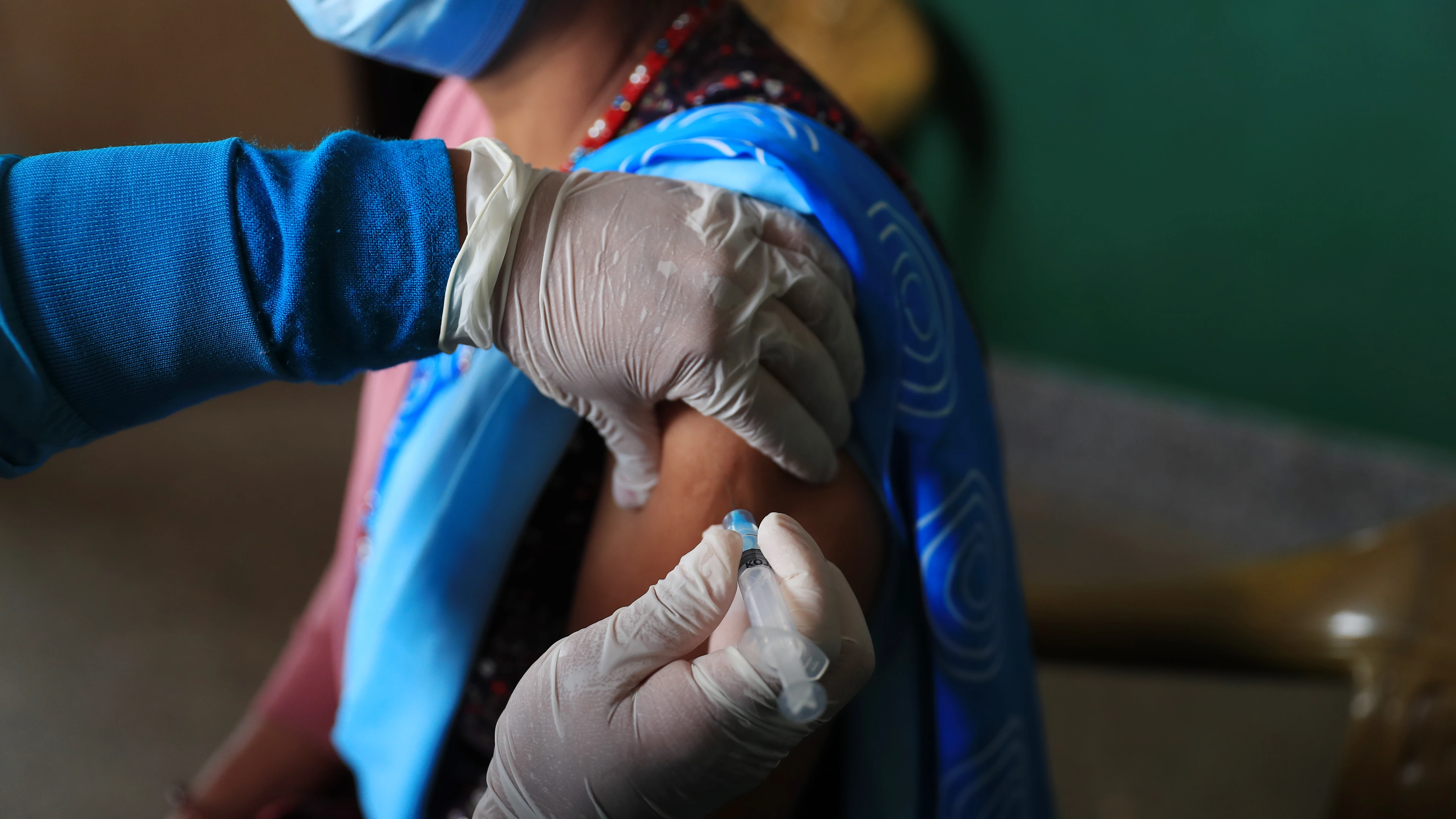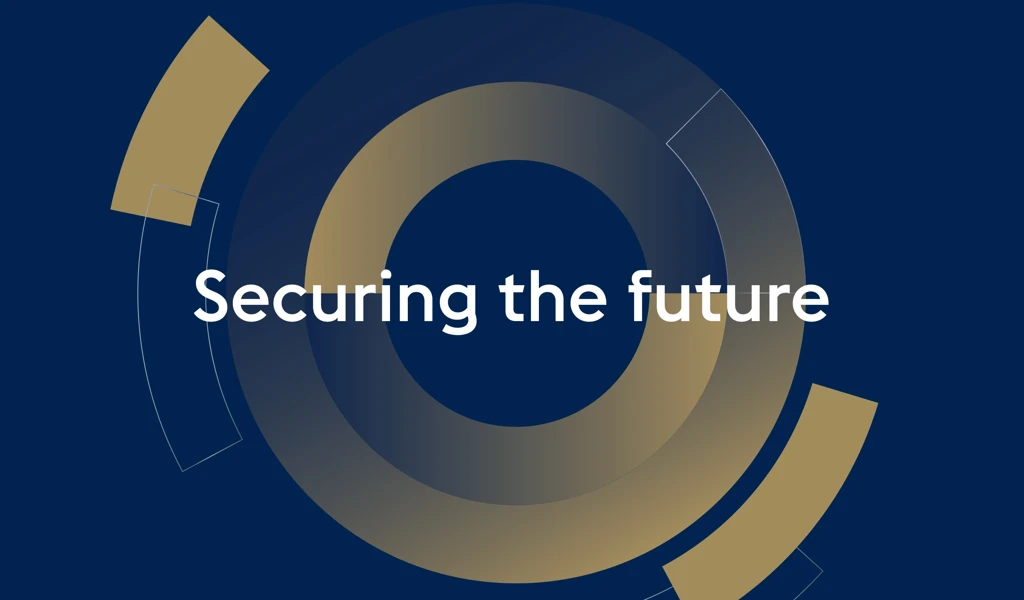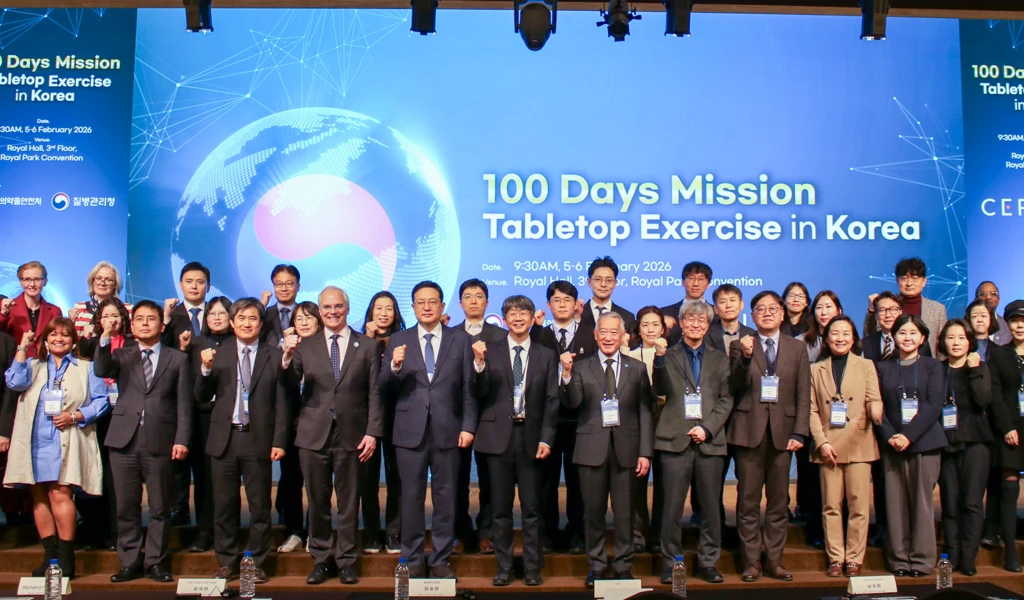Re-engineering for equity: CEPI's vision for achieving equitable access to countermeasures for epidemic and pandemic threats

CEPI CEO Dr Richard Hatchett outlines CEPI's vision for achieving equitable access, and explores the urgent need to re-engineer the global health security system to put equity first.
The COVID pandemic has arguably done more than any other health crisis in history to expose the tragedy of unequal access to life-saving medicines. ‘Vaccine nationalism' — first manifesting as a phenomenon during the 2009 H1N1 swine flu pandemic, and then denominated during COVID — is a term now instantly understood around the world. It cuts to the heart of what the world did well, and what it did badly, in responding to the global spread of a novel deadly disease.
But vaccine nationalism, and inequitable access to medical countermeasures more generally, were not just by-blows of the COVID pandemic. As features of the response, they both deepened the pandemic's impact and helped perpetuate it. Vaccine hoarding and unequal access to vaccines, testing and treatments increased the pandemic's death toll, strengthened its grip on unprotected populations, and fuelled wave after wave of new infections driven by mutant variants. In reckoning the cost of this inequitable access, it is critical that it be understood as an intrinsic feature of what — in 2020 — passed shambolically for the world's global health security system.
As we seek to recover from the pandemic and begin preparing for new threats, it's vital then that we re-engineer this system so that it will produce better outcomes in the future. Dramatically accelerating the development and achieving allocative efficiency in the production and distribution of vaccines and other medical countermeasures is not just a "nice-to-have". In an age of pandemics, it is essential. The system we have now protected us only partially and unequally from the COVID pandemic. By some estimates, vaccines may have saved as many as 20 million lives. But they did not prevent mass death altogether, nor the massive blow to the global economy, severe geopolitical destabilization, profound learning loss for a generation of children, and other still unfolding impacts of the pandemic.
We thus need to understand the systemic and structural roots of the inequity that so hobbled our response — and do everything we can to rewire the system to produce better outputs, so that future responses are characterized by the swift and equitable attainment of protection and health security for everyone. Such outcomes will be fairer, and they will also be more effective for the whole world. At CEPI, we describe this as ‘systems equity' - a way for the world to rethink its approach to pandemic preparedness and response to put equity first rather than relegating it to an afterthought.
A commitment to equitable access is inscribed in CEPI's DNA. It is core to our vision of a world in which epidemics and pandemics are no longer a threat to humanity. Our commitment to equitable access informs every aspect of our work and has done so since our very beginnings. Our mission is to accelerate the development of vaccines and other biologic countermeasures against epidemic and pandemic threats so that they are accessible to everyone who needs them, wherever in the world that need arises. Since it is incumbent on CEPI to do everything in its power to prevent a repeat of the tragic and deadly inequity that defined and prolonged the COVID pandemic, but also since we cannot achieve equity alone, we are today publishing a description of CEPI's Equitable Access Framework to help shine a light on our way of thinking, and operating, to achieve that goal.
CEPI's understanding and approach to promoting equitable access has evolved over our first five years, and has been honed and refined as we learned from our own and the world's successes and failures during COVID. The presentation of our Equitable Access Framework published today is an effort both to describe how CEPI embeds equitable access into every step of its work and to outline the systemic changes we think are vital to the building of a global pandemic preparedness and response capability that will succeed in keeping the world — the whole world — safer from infectious disease threats. The Framework is not intended to provide a detailed step-by-step prescription for how to achieve equitable access, but to outline how CEPI approaches all of its work by keeping equitable outcomes as the essential goal. We believe others should do the same, since the impact of our individual efforts will be greater if we work together towards this common goal.
SCARCITY AND SPEED
The COVID pandemic demonstrated with painful clarity that scarcity is the enemy of equity.
Until the scarcity of critical life-saving medical countermeasures can be overcome, no approach to equity on a global scale will be possible. Governments with resources will use those resources to protect their own populations first, so long as medical countermeasures are scarce. Alleviating scarcity will not automatically produce equity (there are many other factors, from financing to delivery capacity, affecting the flow of countermeasures to the people who need them), but it is a precondition for achieving it.
It goes almost without saying that the longer it takes to develop and deliver countermeasures for a newly spreading pathogen, the higher the risk is that the disease will spread to more areas, more countries, across regions, and perhaps globally.
That is why CEPI's main focus, where the threat posed by Disease X is concerned, is speed. CEPI's 100 Days Mission, embraced by the leaders of G7 and G20 nations, is a plan for how the world could develop new vaccines against almost any conceivable viral threat — new or re-emerging — within as little three months from the recognition of the threat.
Our 100 Days Mission has equity at its core. Being able to deliver effective vaccines within 100 days of a threat emerging will systematically reduce the threat posed by future infectious disease outbreaks. In the best case, the rapid delivery of countermeasures, coupled with the earlier detection of novel pathogens, use of test-and-treat strategies, and implementation of containment measures, may allow incipient pandemics to be stopped in their tracks altogether. Such an outcome, by eliminating the distributive problem altogether, is the only one guaranteed to produce full equity.
But even if an incipient pandemic can't be stopped in its tracks, delivering definitive countermeasures for use more quickly means that epidemic progression can be slowed, even as the scaling of production of the countermeasures is accelerated. The period characterized by severe imbalances of supply and demand and concomitant global scarcity (which gave rise to vaccine nationalism in 2009 and 2020-21) will thus be shortened. And shortening this period will substantially increase the prospects for distributing vaccines and other countermeasures more equitably.
The 100 Days Mission may evoke images of a high-tech race — a technological competition being played out among rich countries, far removed from the needs of those living in poor countries and unlikely to benefit them in the next crisis. But such perceptions are misplaced. Fundamentally, developing, delivering and scaling up new epidemic vaccines more rapidly than we have is an essential prerequisite to achieving greater global equity.
But the faster development and production of vaccines and other countermeasures will result in equitable access only if the system has also been properly reconfigured to deliver that equity, and neither CEPI nor any other organization or actor can deliver or ensure equitable access by itself. Designing a new system that produces equity as a "natural" output will require sustained focus, problem solving and investment, involving many partners across the entire value chain.
PREPARING FOR EQUITABLE OUTCOMES
CEPI seeks to enable equitable access within a broad ecosystem of national and international public and private sector partners and networks. CEPI's influence in promoting equitable access is mediated through projects and activities that it funds directly, through coordinating its actions and working in concert with others, and through advocating for change or evolution of financing, procurement, and delivery mechanisms that are beyond CEPI's remit.
In CEPI's Equitable Access Framework, we outline the key objectives and enablers that will guide our decision-making and anchor CEPI's investments and activities as we play our part in getting the world ‘mission ready'. These are CEPI's direct contributions to the development of products and capabilities that are needed for everyone, everywhere to be equally protected from epidemic and pandemic threats.
CEPI's core mandate, of course, is to develop vaccines against epidemic and pandemic diseases so they are available to anyone who needs them. CEPI's work on its priority pathogens — which includes developing vaccines against known diseases such as Lassa fever, Nipah and Rift Valley Fever — focuses CEPI on diseases that mainly affect lower and lower-middle income countries. How and where such products are manufactured and stored, the costs of production and stockpiling, whether they are easy to deliver, their method of administration, their thermostability and any associated cold chain requirements, and of course their price will heavily influence whether and to what extent equitable access is achieved. Barriers to access can often be overcome through smart investment to improve the underlying technology or presentation of the vaccine. CEPI program managers always have the end goal of delivery and administration in mind and thus take access into account as they steer their programs forward.
To advance our goals in this domain we seek industry partners with a demonstrated commitment to equity. A case in point is CEPI's recent investment in the Korean vaccine developer and manufacturer SK bioscience for a new rapid response platform technology. That partnership enhances equity by giving CEPI access to an mRNA platform that could be deployed against multiple potential threats, and to an industry partner that has committed to fair access by prioritising supply for low- and middle-income countries at affordable prices.
To overcome some of the structural barriers to equity that we observed in the COVID-19 pandemic, we support the geographical diversification of vaccine manufacturing to promote regional vaccine self-sufficiency. We do this through our policy and technical contributions to global and regional initiatives — for example, through the Regional Vaccine Manufacturing Collaborative (RVMC), which we co-chair with the US National Academy of Medicine under the convening of the World Economic Forum, and as an active participant in Africa CDC's Partnerships for African Vaccine Manufacturing (PAVM) - as well as through targeted investments in a network of vaccine manufacturers in the Global South which will expand sustainable routine and outbreak vaccine manufacturing capacity in those regions.
CEPI can also catalyze actions that will enable access in areas where CEPI cannot act alone. CEPI's plan to work with others to create and stock a Global Vaccine Library for the world (which will eventually hold candidate vaccines against prototype viruses from the 25 viral families that pose risk to humans) is targeted at increasing the speed and equality with which the world can respond to new disease threats. The development of a Global Vaccine Library will be a shared global endeavor and require collective, distributed effort. The rules governing access to the products and prototypes within the library should thus be developed to ensure benefit for all.
And of course there will be many barriers to access that lie beyond CEPI's span of control. Just as the elimination of scarcity for COVID vaccines did not immediately translate into global equity due to shortfalls in financing and delivery capacity, future responses are likely to be hobbled by similar deficiencies if these cannot be rectified. Going forward, investments in global health and healthcare system strengthening, not to mention in expanding vaccine manufacturing capacity, must take resilience against infectious disease emergencies into account. CEPI is well-positioned to advocate for investments that enhance resilience, especially where these entail trade-offs in terms of efficiency and might initially seem unattractive.
We thus welcome initiatives such as the ‘One Shot' campaign launched late last year by the Global Health Security Consortium, which seeks to maintain the momentum of the scaled-up vaccine manufacturing, procurement and delivery capabilities achieved during COVID and embed them into newly-resilient, ‘always on' health systems that continue to deliver vaccines against infectious diseases to people who need them in non-pandemic times. Such sustainable and viable health infrastructures at national and regional levels will not only improve equitable health security during ‘peacetime', but will also be vital for the world to be able to mount rapid - and hence equitable responses - to future epidemic and pandemic threats.
Where possible and relevant, we can and will lead by example — putting equity at the heart of each and every investment we make - and also through our advocacy and policy work around the world. Globally, we support establishing equity as a core requirement in the International Negotiating Body's discussion on a Pandemic Treaty, the World Health Organization's plan for a safer world, and in G20 efforts on health and finance. And in our work with governments, regional bodies, academic institutions and other funders, we also promote equitable access by encouraging financial backers to embed equity into all pandemic preparedness endeavours with elements such as fair pricing and diversified manufacturing locked in from the outset.
The COVID-19 pandemic was a catastrophic event that exposed the cruel consequences of a global system that was not configured to protect everyone equally from diseases that threaten the whole world. We cannot move forward to achieve fuller and more equitable health security unless the system is re-engineered to be more equitable. CEPI's role in that is crucial, as are the efforts of many other national and international bodies within the system. CEPI is doing this not just because fairness is the right thing to strive for morally, but because fairness is also the ONLY way to protect all the world's people, and hence any of them, from pandemic threats. A global health security ecosystem can only be truly global if it is also equitable.
Read more:
CEPI Equitable Access Framework
CEPI Equitable Access webpage
Image credit: UNICEF


.webp)